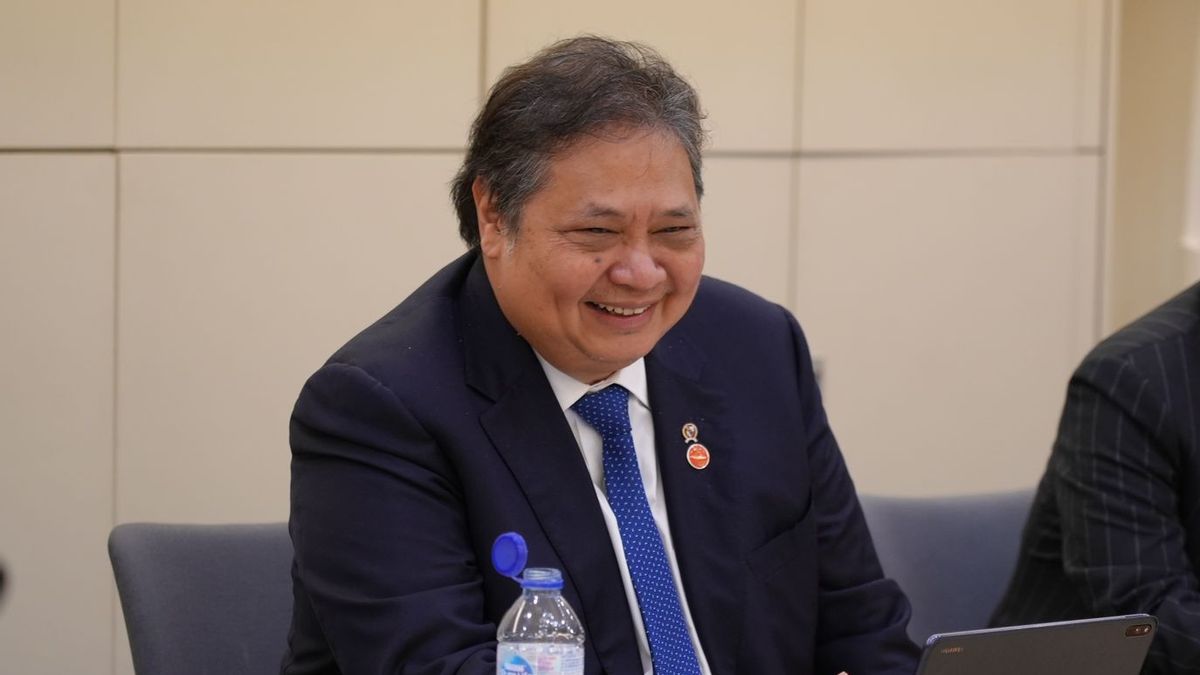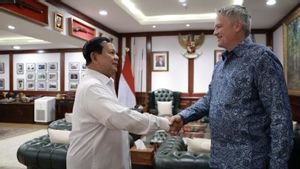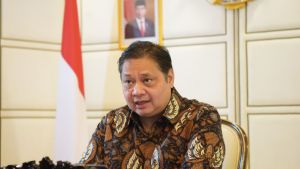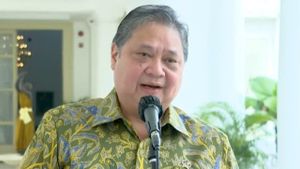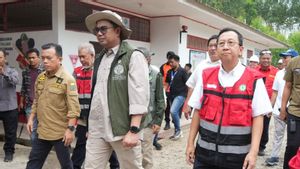JAKARTA - In accessing the government's Economic and Development Cooperation Organization (OECD) it also involves employers' associations and other stakeholders.
In the process, the Coordinating Minister for Economic Affairs Airlangga Hartarto targets Indonesia to officially become an OECD member in 3 years. For this reason, all technical planning must be prepared, including integrating OECD standards with the National Long-Term Development Plan (RPJPN) and the National Medium-Term Development Plan (RPJMN).
"But it is an internal target so that all stakeholders can work together, and be involved in the accession process, both within practical standards and will also involve Kadin, Apindo, and the private sector and all stakeholders," said Airlangga during a press conference at the Workshop for the OECD National Team' in Jakarta, Wednesday.
Currently, Indonesia is focusing on compiling an 'Initial Memorandum' as a fulfillment of the standards and full membership requirements of the OECD. The memorandum will be a tool for Indonesia to convey to the world regarding the reforms to be carried out.
The initial Memorandum includes 26 sectors in the OECD "steering commitment". Memorandums compiled include from the financial, economic, anti-corruption sectors, healthy competition, consumer policy, digital economy, to polycy technology.
Airlangga explained, during the accession process, the National Team for the Acceleration of OECD will also involve all parties related to the 26 sectors to complete the Initial Memorandum.
"We are integrating the national medium and long term development plan. And of course the implementation of OECD will continue the structural reforms carried out by Indonesia which begin with the Omnibus Law of Job Creation. In the implementation of regulations, of course, we will see the best practices carried out by various countries, including in the OECD," he said.
Furthermore, Airlangga assessed that it was important for Indonesia to become a member of OECD to be able to get out of the trap of middle-income traps.
Indonesia is aiming for Gross National Revenue (PNB) per capita of US$30,300, with the middle class population covering 70 percent of the population and GDP reaching US$9.8 trillion in 2045.
He hopes that with the official membership of OECD, Indonesia can become the country with the fifth largest economy in the world that makes a significant contribution to global economic growth and stability.
SEE ALSO:
"Of course we can if the higher target is at 12,000 US dollars in the next 10 years. Then in the next 20 years we will increase it again to 24,000 US dollars, up to 30,000 US dollars," explained Airlangga.
On the same occasion, OECD Secretary General Mathias Cormann said that his party had started conducting technical reviews for the 26 sectors in question.
Review is carried out for laws and regulations, policies and legal practices in Indonesia to be in line with OECD membership standards.
Indonesia as an important and highly respected global player will also have an important voice in the OECD Council, where we try and find the best way forward for the global community to address some of the common challenges of our time. So this is a historic opportunity for OECD," he concluded.
The English, Chinese, Japanese, Arabic, and French versions are automatically generated by the AI. So there may still be inaccuracies in translating, please always see Indonesian as our main language. (system supported by DigitalSiber.id)
